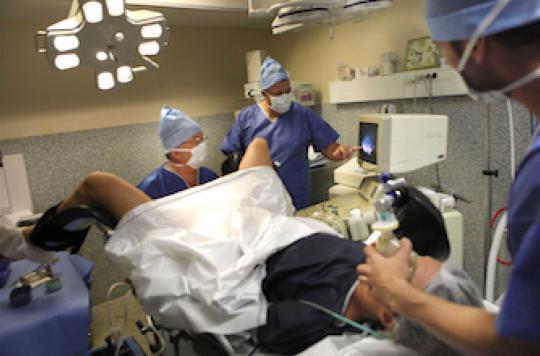Pregnancies resulting from assisted reproduction have an increased risk of complications. The techniques of assisted reproduction are not in question but these pregnancies must be more supervised than the others.

Among the children born every day in France, 1 in 40 were conceived with the help of medicine. Medically assisted procreation (ART) has therefore become almost commonplace, but concerns remain about possible complications induced by these techniques.
An Australian team looked at more than 300,000 non-multiple pregnancies between 1986 and 2002. Of these, 2,000 occurred spontaneously but late in couples diagnosed as having a fertility disorder and 6,000 had received a stroke. inch of medicine: egg donation, fallopian tube gamete transfer (GIFT), in vitro fertilization (IVF) or in vitro injection of a sperm into the egg by means of a micro-pipette (ICSI). All techniques combined, the risks of miscarriage, prematurity and low birth weight are multiplied by 2 in the event of medically assisted pregnancy compared to spontaneous pregnancy.
Listen to Dr Joëlle Belaïsch-Allart, head of the Gynecology-obstetrics and reproductive medicine department, Sèvres hospital (92): “Women who use ART are ex-infertile and older. However, these are two factors of more complicated pregnancies ”.
The Australian study also details the results technique by technique and the increased risk of miscarriage, prematurity and low birth weight disappears when embryos are frozen before being transferred. “Not all women have frozen embryos, they are the youngest and the best. So again, it is not the technique but the age of the mother that makes the pregnancy go better, ”explains the gynecologist. She also underlines that the data of the study stop in 2002 while the techniques have further progressed since. “We now do prolonged culture, that is to say that the transfer into the woman’s uterus takes place later and that there is more chance that it is a single embryo. We therefore limit the risks associated with twin pregnancies, ”she explains. For a pregnancy after IVF carried out in 2014, the risks are therefore probably no longer doubled compared to a normal pregnancy.
Pregnancies not quite like the others
“This kind of study should not panic couples, just remember that if the children of assisted reproduction are normal, the pregnancies are not completely normal and a little more at risk than the others”, insists the specialist.
Listen to Dr Joëlle Belaïsch-Allart : “Perhaps there is too much tendency to trivialize these pregnancies. It is good to remember that yes, you will surely have to go on leave earlier, adapt your daily life and avoid excessive travel ”.
The 22,000 medically assisted pregnancies that occur each year in France must therefore also be medically monitored.













